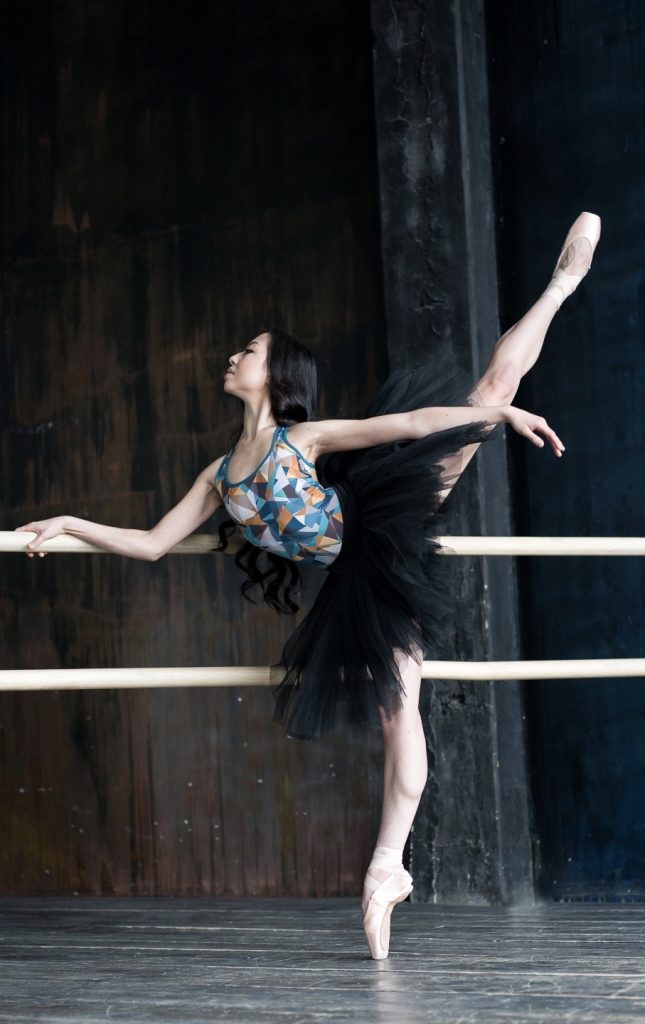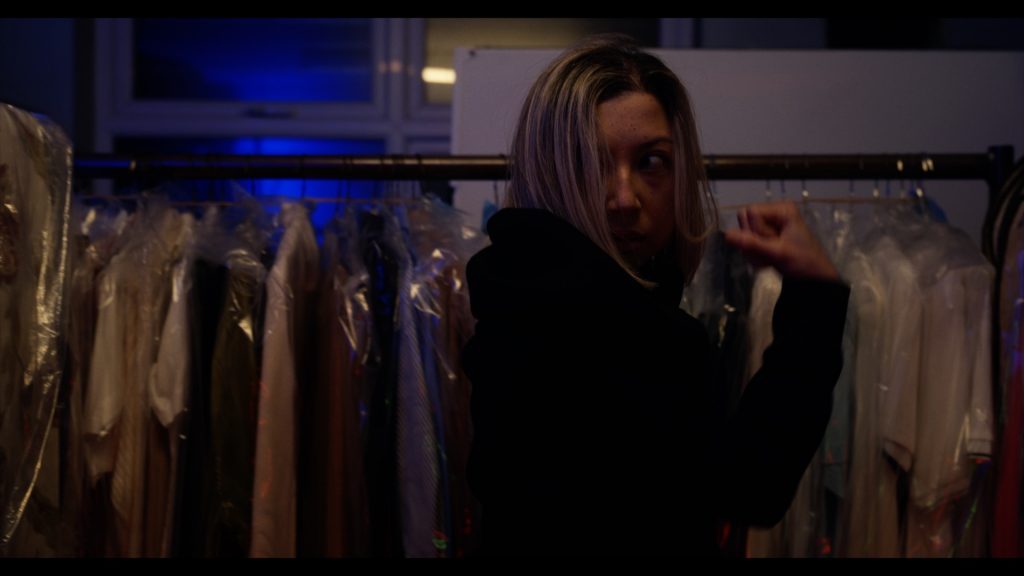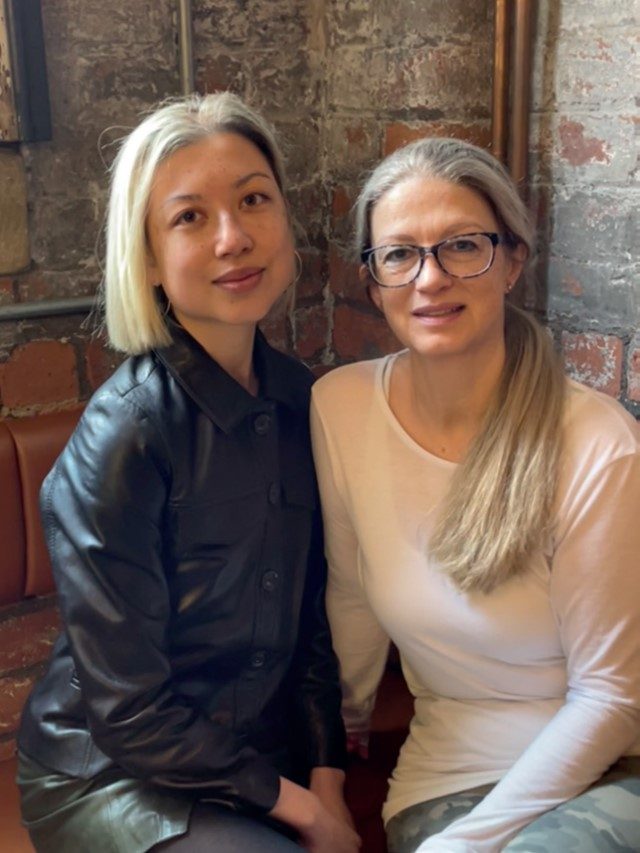There’s an admirable fearlessness about Tala Lee-Turton.
Her whole life has been spent meticulously moving her body beyond its limits as a classically trained dancer. But now she’s pushing the boundaries of ballet, exercising her creativity to produce performances that defy the customary conventions and boxed in views of the past.
Ten years ago, aged just 16, Tala left her home in Barnsley to study at the prestigious Bolshoi Ballet Academy in Moscow. Following four intense years of rigorous training, she became only the third British female to graduate from the Bolshoi in its then 245-year history.

Few have the dedication and drive to make it to the top of such an incredibly competitive profession. But Tala fervently leapt into professional contracts with the English National Ballet and Astrakhan State Theatre of Opera and Ballet, dancing in the classics such as Swan Lake, Giselle, and The Nutcracker.
Then the Covid lockdown hit in 2020 which broke the cycle that Tala had found herself stuck in. This hiatus from performing enabled Tala to see life through different eyes, encouraging her to grand jeté towards more meaningful opportunities by launching her own production company to create short films and ballets set within South Yorkshire.
“Life moved really quickly from school to training to professional contract, and only now have I had the chance to take stock and evaluate. I’ve got more clarity as a dancer, something which I never got from training, and this is the first time I’m making things for me,” Tala says.
Tala has been dancing since she was four years old, when her mum Sara enrolled her on the books at Cudworth’s Fearons Middleton School of Dance to make new friends. Ballet was prioritised and, having done well in her exams, Tala was pushed to progress through to associate programmes. Aged 11, she won a government-funded scholarship at a performing arts boarding school where she was told by a tutor she’d never make it as a classical dancer.
“Dance is very much a lifestyle, and children and their parents get thrust onto that crazy rollercoaster. My family had no previous dance experience; we didn’t know what to expect. In the big eco-system of dance there’s a lot at play and many aspects to consider, such as psychology and sociology. I hope eventually there will be some proper research into these barriers that people don’t realise exist.”

Nobody in her family dreamed that Tala’s career would unfold the way it has, but for her she says it was always going to be about dance. But having given so much of herself over the last ten years, she’s now throwing out the rule book and advocating her own vision for the future of ballet.
“With ballet, the training is more like that of an athlete; it doesn’t teach you how to be creative or an individual. You’re taught to be identical to the girl in front which can create a homogenous mass. If even one finger is out of place the line is incorrect. It’s a fantastic skill and very valuable, but there should be time set aside to develop autonomy and individuality which would serve classical dancers well in the end.”
Change is embedded within performing arts; it’s not fixed like a portrait or sculpture. But ballet has seen a slow pace of change, still entrenched in outdated sensibilities and decision making dominated by the white male gaze.
Tala’s projects aim to break down elitist connotations and make ballet relevant to modern audiences.
“I have a real drive to create content in South Yorkshire. Our region often gets a bad rap from people with warped perceptions, but we have such a culturally rich society full of multi-faceted people. My grandad was a lorry driver who loved opera. It’s all about the audience and I’m not here to dictate how someone should enjoy and interpret a classical art like ballet as that only serves to widen the gap.”
Her past and present productions touch on pressing issues close to her heart, such as female empowerment. Tala has been keen to champion the work of like-minded women on similar paths in their careers, such as composer Grace Stubbings, director Patricia Zhou, and choreographers Zhongjing Fan and Krystal Lowe.
“I’m lucky to have strong female role models in my life and I admire the grit they’ve all shown. My mum Sara raised me as a single parent and fundraised to send me to the Bolshoi, all whilst running a successful business.”
As part of WE Wonder Noir at Wentworth Woodhouse earlier this year, Tala was commissioned to create a dance film called Chinese Laundry based on her paternal family history. The plot follows a Chinese immigrant trying to fit in with life in South Yorkshire and flits between a laundrette and the Peak District.
“I’ve wanted to explore my heritage for a while now. My grandparents came over to the UK from China in the 1960s and opened a Chinese takeaway. Then when my dad Tom was a similar age to what I am now, he opened a dry cleaning business. We shot the film in one day in Dad’s dry cleaners and in the Peaks.”

In August, Tala will bring ballet back to Wentworth Woodhouse a hundred years after prima ballerina Anna Pavlova was reported to have performed for King George V there in 1912 with a four-date showing of her current production, No Time Like the Present.
This one-act ballet challenges traditional conventions such as setting, costume and music. All the dancers are young women, comprising varied dance backgrounds, heritage and experience. Tutus and pointe shoes are replaced with unconventional textures and flashes of neon, while the musical score swaps an orchestra for synthesizer. The performance will be given outdoors, removing the walls of a theatre which can feel intimidating to some.
“I chose Wentworth Woodhouse as the venue due to its rich cultural landscape. I feel it’s representative of a South Yorkshire community – my grandma walks there regularly. We spent weeks there last summer doing research and development in the gardens, where visitors had the chance to see us rehearse. The part of the gardens we’ve chosen has a slight incline, so it’s a natural amphitheatre and will mean the audience will feel like they’re having a picnic semi-immersed in the show.”
Following this, Tala will start research and development into another new production called Here Lies based on the unrecorded graves of women at Sheffield General Cemetery, symbolising the social constructs that bury women in life and death. Here Lies will be a duet between Tala and cellist, Roxanna Albayati.

Alongside producing and training, Tala is back in education, studying an art management degree at Goldsmiths, University of London. This has proved invaluable for Tala, with networking opportunities opening doors to funding and grants opportunities which will enable her to further develop her productions to take them to different venues or create triple bills.
Life changing events often lead to us turning to art and culture to tell us about ourselves. Had it not been for the pandemic flipping her world on its head, perhaps Tala wouldn’t have been afforded the opportunity to elevate her work beyond the remits of what had been ingrained in her from a child.
“My days are tougher now as I lead on operational and creative decisions as well as performing. I’ve also done a lot of bid writing as my work is all funding dependent. But as I also still dance in my own productions and as a freelancer, I still train to maintain a high technical standard and develop my craft physically, stylistically and artistically. So, training is just as intense as it always has been, with ballet and contemporary technique classes, cycling, yoga, cross-training as well as rehearsals.”
No Time Like the Present is on at Wentworth Woodhouse across the last two weekends in August, from Friday 19th to Sunday 28th. It will also be on at Sheffield Botanical Gardens on 24th and 25th August.
Tickets available from May via www.talaleeturton.com






